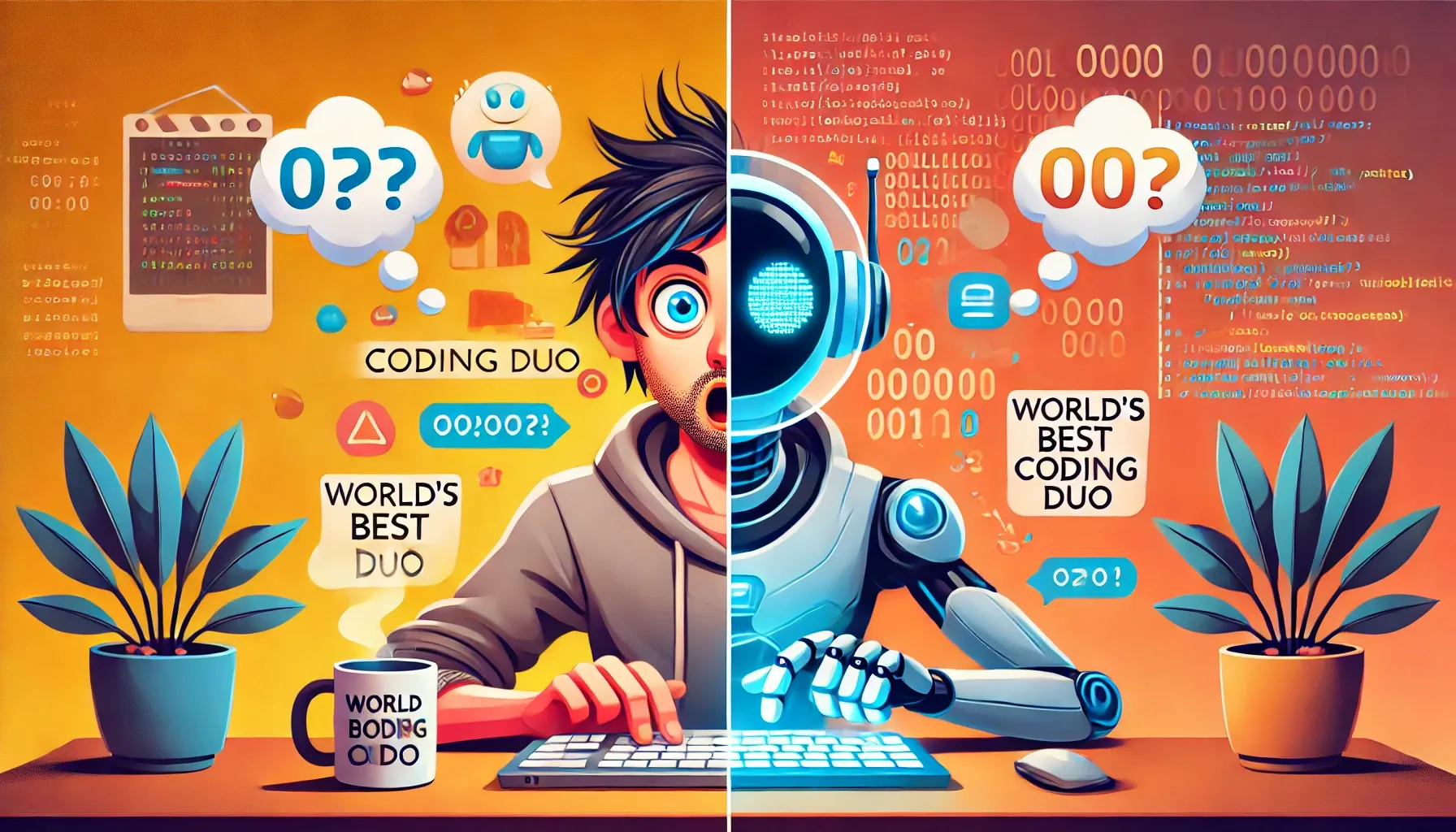Imagine this: You’re coding away, battling bugs and wrestling with syntax errors, when suddenly, a friendly AI pops up beside you and says, “Hey there, partner! Need a hand?” Welcome to the future of software development, where your new co-coder is not just another human but an artificial intelligence ready to help you tackle those pesky programming challenges.
What is AI Pair Programming?
AI pair programming is like having a coding buddy who never sleeps, doesn’t need coffee breaks, and can instantly recall every programming language known to humankind. Tools like GitHub Copilot and Tabnine are designed to assist developers by suggesting code snippets, completing functions, and even offering solutions to common problems. Think of it as your trusty sidekick in the world of coding—minus the cape but with plenty of algorithms!
Benefits of AI Co-Coding
Let’s dive into the benefits of having an AI co-coder by your side:
1. Increased Productivity
With AI handling repetitive tasks and suggesting code snippets, developers can focus on more complex problems. It’s like having a supercharged autocomplete feature that actually understands your intent—no more wasting time on boilerplate code!
2. Reduced Debugging Time
AI tools can analyze code in real-time and flag potential errors before they become full-blown disasters. Imagine your AI buddy saying, “Whoa there! That variable name doesn’t match!” It’s like having a second set of eyes that never tires or gets distracted by cat videos.
3. Enhanced Learning Opportunities
For novice coders, AI pair programming can serve as an educational tool. As you code alongside your AI partner, you can learn best practices and coding patterns without the pressure of traditional learning environments. It’s like having a personal tutor who’s always available—just don’t expect it to explain why you should never use “==” instead of “===” in JavaScript!
Challenges and Concerns
But wait! Before we all jump on the AI bandwagon, let’s address some challenges and concerns:
1. Over-Reliance on AI
While having an AI co-coder is fantastic, there’s a risk of becoming overly reliant on it. Developers might start to forget how to solve problems independently or lose their ability to think critically about their code. It’s like letting your GPS do all the navigating—eventually, you might forget how to read a map!
2. Loss of Coding Skills
As AI tools become more advanced, there’s a concern that new developers may not develop essential coding skills. If the AI does all the heavy lifting, will future coders know how to debug effectively or understand the underlying principles of programming? It’s a bit like teaching kids to rely on calculators for basic math—handy until they face a math test without one!
3. Ethical Considerations
The rise of AI pair programming also raises ethical questions about job displacement in the tech industry. As these tools become more capable, will they replace human developers? Or will they create new opportunities for collaboration? It’s a debate worthy of a tech conference panel—and probably some popcorn.
Real-World Examples
Many developers are already embracing AI pair programming tools with great success. For instance, teams using GitHub Copilot report increased efficiency and faster project completion times. One developer noted that their AI assistant suggested an entire function based on just a few comments they wrote—a true testament to the power of machine learning!
The Future of Collaboration
So, what does the future hold for human-AI collaboration in coding? As these tools continue to evolve, we may see even more sophisticated partnerships between developers and their AI counterparts. Picture this: an AI that not only codes but also understands your preferences and style—like a personal assistant who knows just how you like your coffee (or in this case, your code). In conclusion, while the rise of AI pair programming presents exciting opportunities for enhancing productivity and learning in software development, it also requires us to navigate some challenges thoughtfully. As we embrace our robot co-coders, let’s remember to keep our critical thinking skills sharp and our coding fundamentals strong. So gear up for the future where coding is less about solo battles against bugs and more about collaborative adventures with our silicon sidekicks! After all, every great hero needs a trusty sidekick—even if that sidekick is made of ones and zeros!
